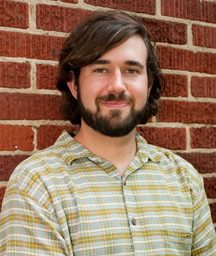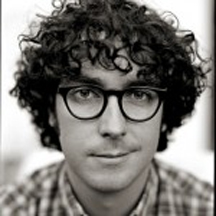By Alecia Perez
Center for Community-Based Partnerships
On January 13th, UA faculty and graduate students interested in the intersections of engaged scholarship and the digital humanities participated in the first Engaged Scholarship Brownbag Series, sponsored by the Center for Community-Based Partnerships (CCBP) and the Alabama Digital Humanities Initiative (ADHI), directed by Tom Wilson, associate dean for Library Technology.

Held at the Alabama Digital Humanities Center in Gorgas Library, the meeting featured graduate student Elliot Knight and TCF faculty member Andy Grace as guest speakers. Over the last four years and with support and partnerships between CCBP and the Black Belt Community Foundation, Knight has offered the 100 Lenses program in all 12 Black Belt counties in Alabama. Students are recruited from throughout the Black Belt to stage exhibitions in which they tell their community stories through photography, videography, writing and speaking.
The 100 Lenses program also conducts a summer camp for students from throughout the Black Belt, who stage exhibitions in which they tell their community stories through photography, videography, writing and speaking. The third annual 100 Lenses summer camp is scheduled for June 10-14 and will bring together over 50 high schools students to collaborate with one another. Students will share photos and stories from their hometowns with one another, work with community artists and creative writing instructors and produce an exhibit that will be displayed around the state and online. The 100 Lenses 2012 summer camp will be June 10"“14.

Grace, a faculty member in the Department of Telecommunication and Film and director of the Documenting Justice Program, told the group about his work creating an online interactive documentary project called “After the Storm.” The project will examine the City of Tuscaloosa’s long-term response after the April 27th tornado by using the stories of residents, city officials and business owners to create a tapestry of voices of those who are working to rebuild.
Dr. Heather Pleasants, organizer of the Engaged Scholarship Brownbag Series and director of community education at CCBP, called the brownbag series "emblematic of the very nature of engaged scholarship at The University of Alabama. Engaged scholars come in many forms, and their work often involves interdisciplinary collaboration."
The first brownbag of the current academic year was held in the fall and focused on research related to Hispanic/Latino families and children. Suggestions for future brownbags are welcome. For more information about the series, email Dr. Pleasants at heather.pleasants@ua.edu. For more information about the Alabama Digital Humanities Initiative, visit http://www.lib.ua.edu/digitalhumanities.

